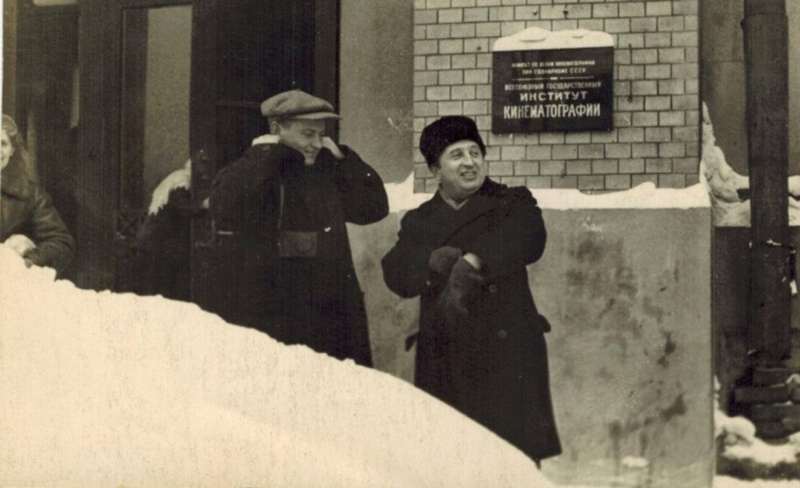
Alexander Karlovich Kruk, Dean of the Russian State University of Cinematography (VGIK), 1940. Photo from csdfmuseum.ru
“Musical Seasons” publish reviews and interviews on films of Sevastopol International Festival of Documentary Films and TV Programs “VICTORIOUS TOGETHER”, a joint project of the Council on Film and Video Visualization of Historical and Cultural Space of Eurasia of the Eurasian Peoples’ Assembly, the Eurasian Academy of Television and Radio, the Government of Sevastopol, Channel One. World Network – Victory Channel”.
Going over our dates,
I'm talking to those guys,
Who went to the soldiers in the 41-st
And became the humanists in 45-th.
(David Samoilov)
As part of the online film marathon of the XVI Sevastopol International Festival of Documentary Films and TV Programs “VICTORIOUS TOGETHER”, dedicated to the 75th anniversary of the Victory, viewers could see the film by Ekaterina Golovnya “VGIK. Opolcheniye (Militia)” (Russia, 2017). I was in the audience.
In that terrible 1941, the people's militia fought near Moscow. “Writers Company”, youth, talent, students of the VGIK faculty of cinematography together with their vice-rector Alexander Karlovich Kruk, left to militia, and everyone died. It was impossible to survive there. As in other battles. Still, there were those who survived screenwriter Leonid Broslavsky, son of Alexander Kruk - Mikhail Kruk, Grigory Chukhrai, and how many of them who returned - from Berlin, Warsaw, Prague, Rzhev, Kursk, Stalingrad…
In the film, you can see and hear sincere, genuine, clear, simple story and memories of those who survived and those who went to the front and was killed. They went to the front. How could they not leave? Everyone decides for himself, because war is a terrible thing, they kill on it. People want to live, to preserve and develop their talent and creativity. Who will judge? Who will throw a stone? Everyone decides for himself as in 2017 so as in 1941 and now.
We, the descendants, have the memory left of the Great Patriotic war. This memory lives in photographs and letters of grandfathers and great-grandfathers, in poems, and in that post-war humanist cinema, which cannot be repeated, but it seems necessary to do.
Marina Abramova


